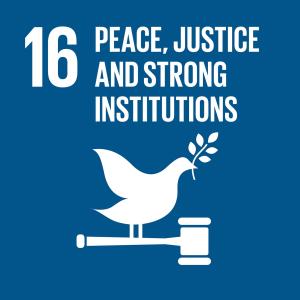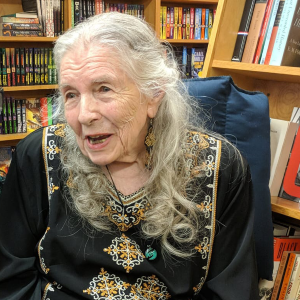What Comes Next in the Philippine Drug War and Will Duterte Pay for His Crimes? [FEATURE]
As the month of June came to an end, so did the term in office of Philippines President Rodrigo Duterte, notorious for presiding over a bloody and still-continuing "war on drugs" that has left more than 30,000 dead at the hands of police and shadowy vigilantes, according to Filipino and international human rights organizations. Duterte's human rights violations sparked the interest of the International Criminal Court (ICC), whose Office of the Prosecutor (OTP) opened an investigation into the matter last year.

Replacing Duterte is Ferdinand Marcos, Jr., known as "Bongbong." Marcos comes with his own baggage; he is the son of former Philippines dictator Ferdinand Marcos and his wife Imelda, infamous for her shoe collection. And his vice president is none other than Duterte's daughter, Sara Duterte. Between them, the pair provide a double dose of strongman genes for a population that has proven eager to embrace them.
With the Duterte government now in the rear view mirror, the question now are what happens next in the Philippine drug war and will there ever be justice for the crimes of the past six years?
In a parallel event to the UN High-Level Political Forum on Sustainable Development on Thursday, "Building Back with Justice? Marcos, Duterte, the ICC, and the Philippine Drug War," took on those issues. Sponsored by DRCNet Foundation (also known as StoptheDrugWar.org -- publisher of this newsletter), a US-based NGO in consultative status with the UN Economic and Social Council, and the Italy-based Associazone Luca Coscioni, the event was moderated by StoptheDrugWar.org executive director David Borden and Italian former senator Marco Perduca of the Associazone. The event focused on Goal 16 of the 2030 Sustainable Development Goals, "Peace, Justice and Strong Institutions."
In the virtual event conducted via Zoom, participants heard from three Filipino experts: human rights activist Justine Balane, Ruben Carranza of the International Center for Transitional Justice, and Dr. Aurora Parong of the Philippine Coalition for the ICC and the Philippines branch of Amnesty International.
"One of the goals is #16, is peace, justice, and strong institutions. Issues like human rights, accountability and so forth fall within that topic," said Borden, who noted, "Our first event held in March 2017 at the Commission on Narcotic Drugs in Vienna, where we were privileged to present a video from then Vice President Leni Robredo, a video which became controversial in the Philippines due to attacks being made on her for it by political opponents. Robredo was in the first year of her term as vice president, having narrowly defeated Bongbong Marcos to win that post."
"I will lastly note it's nearly 5 ½ years since then Senator Leila de Lima was jailed [on bogus charges for criticizing Duterte's drug war], and we share the widespread hopes in the international community that she will be released soon, particularly since... three of her key initial accusers have recanted their accusations and stated that they were made under pressure."
Perduca followed with a short history of the ICC, explaining that the core crimes with which it is concerned are war crimes, genocide, and crimes against humanity, with the crime of aggression added later.

The new boss looks too much like the old boss, according to Balane, who in his day job serves as Secretary General of the organization Akbayan Youth.
"In the first half of the year, during the campaign season, the streets were blaring with the jingle of the new president and vice president, which started with the lines "Bagong Pilipinas, Bagong Mukha." It roughly translates as new Philippines and new faces," he said. "But in reality, it's not. In the first half month under Marcos and Duterte, we're been shown the same drug war tactics and the same level of government oppression... The killings haven't stopped with Duterte leaving... and how the killings have remained largely uninvestigated, and the killers let loose under Duterte and possibly Marcos."
"Data from the University of the Philippines (UP) Third World Study Center show that there have been 155 deaths for the first half of the year," Balane noted. "Even in Duterte's final year in office, the killing of children in the drug war continued... [including] two children in the last month of Duterte in Malacanang (the Philippines' executive branch headquarters)." In UP's research, from January to July 2022, 68 of the deaths were carried out by state agents... I'm relying on this UP data because there is a huge underreporting crisis on drug war numbers... This year, before Duterte left office, the Philippine Drug Enforcement Agency reported that there have been a total 6,248 drug war deaths since Duterte took office. This is a figure that is at least 24,000 lower than the estimates of the Philippine Commission on Human Rights and other human rights groups... [I]t's even lower than the figure provided by the office of Duterte... [I]n 2017... the presidential office... admitted... that the drug war killed 20,000 people and listed in its annual accomplishments report, under the section 'fighting illegal drugs in 2017.' This... report became the basis of the Supreme Court order to the Duterte government to explain and release data on the 20,000 deaths which could be state sponsored," Balane said.
Balane was critical of the Duterte government's claim that it would investigate the killings, obviating the need for the ICC to step back in.
"Last year... the Philippine Department of Justice vowed to the international community that they are able and willing to conduct a domestic review of the drug war cases, just to show that the justice system is still working... But this year, the Department of Justice announced to the United Nations that only four cases have led to actual new prosecutions. Imagine that!" he exclaimed. "Four cases out of more than 30,000 reported or suspected cases under the drug war... [T]hat's showing this government has been noncommittal and not... serious about its obligations to the international community, not upholding its human rights obligations."
The Duterte government clearly failed to pursue the police and shadowy vigilante groups behind the killings, Balane said.
"To date, there remains only one case that has led to a guilty verdict against killer cops, and that was in 2018... That's because the norm is of acquitting and letting killer cops go scot-free... Seriously, the prospects of investigation bringing to justice the cases and the killings that happened under the Duterte admnistration remain bleak."
Balane was not optimistic about the prospects under the new Marcos administration.
"As we enter Bongbong Marcos's presidency, one person a day is killed, approximately. This is according to [UP data]... An official of the Marcos government also vowed that the drug war will be as intensive as before. Even President Marcos himself during the campaign trail said that he would continue the drug war with the same vigor but a different approach. But we continue to question the government's seriousness to put into law any program that is an alternative to what the law enforcement agencies have already been accustomed to under Duterte, because they have already been so comfortable with getting away with their crimes," he charged.
As early as 2017, Senator Risa Hontiveros of Akbayan already filed a bill in the Senate providing a framework for a public health approach on the drug problem. But until now there has been no push from others in the Senate or anyone else in the legislative chamber or the executive to pass it or adopt elements of it highlighting harm reduction instead of the punitive, violent and largely failed approach of the Duterte administration."
Balane concluded by noting, "Marcos Jr., who sits in the office of the president, refuses to be accountable for the extrajudicial killings that happened under his family's regime in the '70s.
"It's important to note that the drug war is not over," said Carranza of the International Center for Transitional Justice. "There's this famous quote from The Wire, that TV show about drug wars, that 'drug wars are not actual wars, because drug wars never end.'
Carranza explained, "On the first day of Ferdinand Marcos Jr. as president... there were drug war killings in the University of the Philippines... involving two brothers who were... from a very poor family... The brothers were invited by a supposed friend to help fix a car, but instead they were taken by plainclothes armed men in a car that was unmarked, taken from the university, and then their bodies were found two days later," he noted.
"I mention this because... part of what Duterte unleashed has been the creation of a national death squad that has now come to exist apart from Duterte himself... [So] I don't think we can reckon with accountability in the drug war based on who the president of the Philippines is. It's important to look at the institutions that enforce the drug war, both the formal state institutions, the Philippine National Police, and the non-institutional and yet much more powerful creations that the drug war has led to. A death squad that used to be local -- Davao City -- has become national under Duterte, and this national death squad continues." "Vicente Danao, the current police chief, was Duterte's former police chief in Davao City. Vicente Danao has a record, not just of being involved in the drug wars in Davao, but also domestic abuse, for which he was exposed by his wife and had to take a leave from his police duties in Davao -- until Duterte, of course, forgave him and said that he will back him up," Carranza explained.
"Vicente Danao is likely to be one of those that, if the prosecutor goes ahead with the investigation that has already been authorized previously by the pre-trial chamber of the ICC.. [will] be investigated," he continued. "It's difficult to say at this point whether Vicente Danao, or anyone else for that matter, will be charged. But obviously those who have been linked to the death squad in Davao, and now operate on a national scale, are likely to be those who will be investigated and potentially charged. This isn't only because of their links to the death squads in Davao and then nationwide. This is also because the ICC prosecutor, with the approval of the pre-trial chamber, has actually extended the coverage of the investigation of the Philippines drug war to the period when Duterte was mayor of Davao, in other words after the ICC treaty took effect for the Philippines in 2011, and years before Rodrigo Duterte became president... During this period, Rodrigo Duterte was mayor, but there were periods when his daughter was mayor of Davao because they took turns being mayor."
It's important to remember... that the International Criminal Court is not the only institution that can pursue accountability for the drug war. It's important to remember that prosecution is not the only measure by which extrajudicial killings, crimes against humanity committed in the drug war, can be pursued and those behind them be held accountable. Justice doesn't only equate with courts; justice can be pursued elsewhere, outside of courts," Carranza argued.
"There are two ways in which I think accountability and justice for the drug war can be pursued even outside of the International Criminal Court process. One is through a truth-telling process that can be organized at the local level, perhaps at the community level in the Philippines among the urban poor communities that have been targeted by the drug war," he said. "Part of that work is being done now by priests like my friend Father Flavie Villanueva and the exhumations and the reburials and cremations of those whose bodies were buried in cemeteries whose families cannot afford to... pay for the burial plots. That process of removing remains and then having -- my friend as well, one of the forensic pathologists in the Philippines, Dr. Raquel Fortun -- exhume and examine the bodies, conduct autopsies -- is a truth-telling process. It's important for the international community to support that, because this not only empowers communities, empowers families of the victims into acting on their demands for justice, but gives them some hope that even if there's no formal state process that seeks accountability within the Philippines, even if the ICC prosecutor will take longer to actually conduct the investigation, and even if... the ICC as a court cannot proceed because the Philippines does not cooperate... that there are local processes going on that are outside of court processes," he said.
"The second approach to justice for the drug war involves reparations for families of the drug war victims. Reparations isn't new in the Philippines; the Philippines actually passed a law in 2013... to provide reparations for victims of the Marcos dictatorship."
Carranza pondered, "It is possible to give reparations to be given to victims of the drug war, but it is possible under Marcos? ... The sister of Ferdinand Marcos Jr., a senator, Imee Marcos, actually supported a bill that became a law... that gave reparations for those who were victimized and displaced in the siege in Marawi City involving a conflict between a violent extremist group in the Philippine south and the government," Carranza continued.
"But will Marcos Jr. pursue the killings, pursue accountability of those involved in the killings in Duterte's drug war? That is a question that will be fully answered over time, but two things we need to take into account: Marcos Jr. is no stranger to maintaining impunity. He and his family have an interest in maintaining the impunity of Duterte, because any action that might open accountability of presidents past, and even further in the past, will obviously reopen questions around the accountability of the Marcos family," he argued. And "The Marcoses will defend their ill-gotten wealth for as long as they can."
Finally, Carranza argued, "Marcos Jr. will say what the global north's elites will want to hear, what the west, particularly the Europeans in the western part of Europe want to hear, that he will pursue accountability for human rights violations. He has said this... That he will pursue preventive health-related policies for drug users... This is, of course, appealing to Westerners, but does not deal with the root causes of drug use in urban poor communities in the first place, and the economic and social rights violations that then lead to drug use in the Philippines."
Parong and the Philippine Coalition for the ICC are not giving up on the international community.
"The [coalition] is calling on the UN to review and assess the effectiveness of its technical assistance, and review its decision not to probe into the war on drugs. Given the findings of Dr. Raquel Fortun, and of course also the statement of Prosecutor Khan of the ICC that there is no effective investigation, and looking into the systematic nature of the crimes... and therefore have called for the UN Human Rights Council to review its decision..." she said.
"There should be key result areas, or impact assessment of its assistance to the Philippines. Perhaps one would be effective prosecution of perpetrators of the killings in the war on drugs, and then a result that should be achieved. Because there should be changes in the behavior and values of those who are trained during this technical assistance. And then of course there should be the effort to really look at the enablers, those who made it possible that there are >massive killings in the tens of thousands," the humanitarian law expert suggested.
"We also believe that if President Marcos Jr. is really committed to high accountability and to pursue the control on drugs within the rule of law, they should develop a program against drug abuse that integrates a human rights and public health perspective," she continued. "And of course, the Philippine government has to really give complete results of what it says it will pursue the fight against drugs within the rule of law and make high accountability possible, then it should now come out with a very, very complete plan... There has to be specific, there has to be terms of reference, items on the plan, and concrete results in key result areas that can be measured, and not just those general commitments to the rule of law or accountability."
Parong had a specific suggestion for the Marcos-Duterte administration too: "If they really want unity as well as peace so that we can get out of this pandemic crisis... they should review the withdrawal from the International Criminal Court, and consider the possibility of getting back, if they really want higher accountability."
But given the workload of the ICC -- the Office of the Prosecutor is looking at abuses in 16 countries right now, it lacks the resources to do all it needs to be doing," she said.
"We think that the internationally community, especially the Assembly of States Parties of the Rome Statute, should in fact provide the resources which the court needs in order to be able to really act as a court of last resort and deliver justice. Faster also, rather than being at the back burner for investigation, and then it's only after some time that the court can act on them, because they have no resources that is adequate enough to pursue all these cases that they are either investigating, on preliminary investigations, or even those which are on trial. So there has to be more resources and support, not just from the state parties... because if other members of the UN really believe in international justice and support it, then they should support whatever is in the international court's purview to review and make decisions."
And it's not just funding but having the back of the ICC when it is attacked.
"The Philippine president has in the past attacked the ICC as an institution," she noted. "He also attacked UN officials and ICC personnel... During the campaign, the current presient said he would only allow the ICC personnel to come in as tourists, not as investigators... We think the UN members, as well as the Assembly of States Parties of the Rome Statute, should be giving political support to the ICC when there is an effort to attack them or diminish their capacities to do their work because they don't have access to the countries that need to be investigated."
For those seeking radical change away from Duterte's drug war, some of the early indicators -- especially the continuing killings -- are not good. And while Bongbong is talking about some limited reforms, it remains to be seen whether he will pursue even those modest goals. For those seeking justice and accountability for Duterte's crimes, the path remains arduous, but that has not stopped them.





